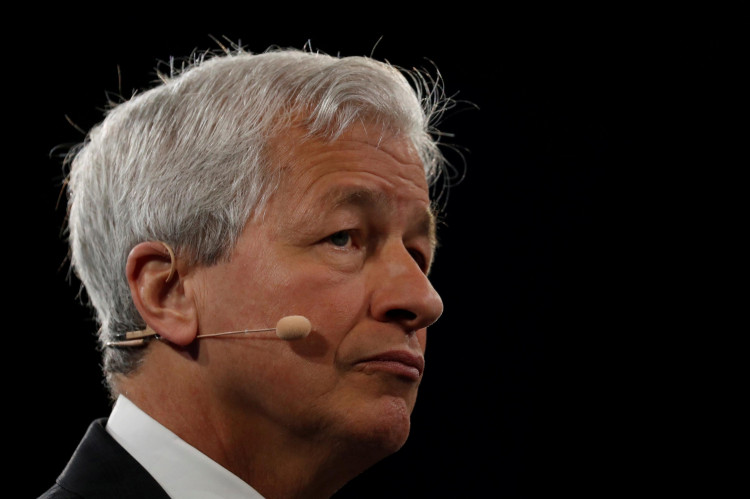JPMorgan Chase & Co., the largest U.S. bank, is designed to the inevitability of a "bad recession" battering the United States starting the third quarter but is confident the U.S. "will emerge from this crisis as a stronger country."
"We don't know exactly what the future will hold -- but at a minimum, we assume that it will include a bad recession combined with some kind of financial stress similar to the global financial crisis of 2008," said CEO Jamie Dimon in his annual shareholder's letter. "Our bank cannot be immune to the effects of this kind of stress."
Because of the immense economic damage being inflicted by the COVID-19 pandemic, Dimon warned the bank's earnings "will be down meaningfully in 2020." JPMorgan Chase will probably consider suspending its dividend to preserve capital in these extraordinarily challenging times.
Analysts said this admission brings into question the results of the bank's annual U.S. Federal Reserve stress tests. The latest of these tests reveal that even in an "extremely adverse scenario," JPMorgan can lend out an additional $150 billion to its clients. Dimon said the bank has $500 billion in total liquid assets and $300 billion in borrowing the ability from Fed sources.
Dimon warned, however, that as the economy worsens and loan losses increase, regulations put in place after the Great Recession of 2008 will begin to constrain the bankability to lend.
"As we get closer to the extremely adverse scenario, current regulatory constraints will limit additional actions we can take to help clients," said Dimon, "in spite of the extraordinary amount of capital and liquidity we could deploy."
This scenario remains remote, however. At present, Dimon said JP Morgan "will participate in government programs to address the severe economic challenges, we will not request any regulatory relief for ourselves."
"After the crisis subsides (and it will), our country should thoroughly review all aspects of our preparedness and response," believes Dimon. "And we should use the opportunity to closely review the economic response and determine whether any additional regulatory changes are warranted to improve our financial and economic system. There will be a time and place for that -- but not now."
Dimon lauded the Fed's actions to relieve strains in financial markets. He believes the Fed can take several more steps to boost the financial system. These steps include offering additional lending facilities and relaxing capital and liquidity requirements.
"We have the resources to emerge from this crisis as a stronger country. America is still the most prosperous nation the world has ever seen."





